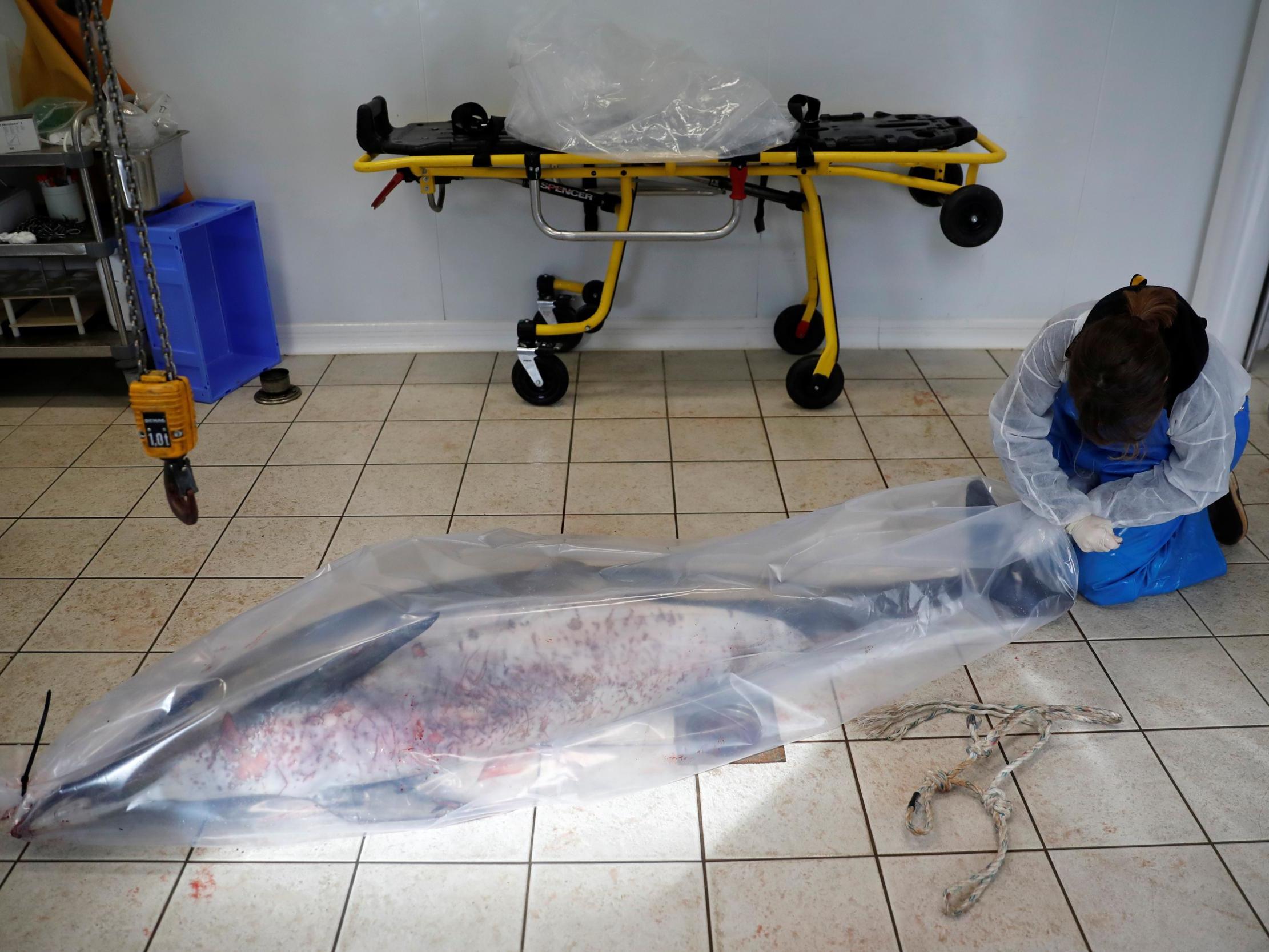Hundreds of dead dolphins washing up on French coast after being trapped in fishing nets
‘For the last three years, we’ve seen more than 1,000 deaths’ annually, says marine biologist Morgane Perri

Your support helps us to tell the story
From reproductive rights to climate change to Big Tech, The Independent is on the ground when the story is developing. Whether it's investigating the financials of Elon Musk's pro-Trump PAC or producing our latest documentary, 'The A Word', which shines a light on the American women fighting for reproductive rights, we know how important it is to parse out the facts from the messaging.
At such a critical moment in US history, we need reporters on the ground. Your donation allows us to keep sending journalists to speak to both sides of the story.
The Independent is trusted by Americans across the entire political spectrum. And unlike many other quality news outlets, we choose not to lock Americans out of our reporting and analysis with paywalls. We believe quality journalism should be available to everyone, paid for by those who can afford it.
Your support makes all the difference.Dead dolphins are washing up on France’s Atlantic coast in such high numbers that local populations of the mammals are at risk, according to marine biologists.
The overwhelming majority of dolphins are found drowned in the nets of fishing trawlers, and post mortems often show fractures, broken tails and flippers, and deep incisions cut into their skin by the nets.
Additionally, some of them have been mutilated as fishermen release their bodies back into the sea.
“We’re reaching mortality rates that threaten the survival of the dolphin population in the Bay of Gascony,” said Morgane Perri, a marine biologist based in Brittany, France.
“For the last three years, we’ve seen more than 1,000 deaths [dolphins and porpoises] over a four-month period each winter.”
Common dolphins are the hardest hit, and scientists believe those found on beaches represent a small fraction of the total number dying in fishing nets off the coast of France.
The real number is likely to be five to 10 times higher, they estimate.
Dolphins have for decades been caught in fishing nets in the Atlantic waters off western Europe, but marine scientists say the spike in numbers in recent years is a result of shifting fishing practices, and in particular the fishing vessels that trawl in pairs for sea bass.
French law requires fishermen to declare all cetacean by-catch [dolphins, whales and porpoises], but Ms Perri said this rarely happens.
The National Committee of Maritime Fishermen did not immediately respond to a request for comment.
The slow reproduction rates of dolphins, which are mammals and need to surface in order to breathe, means they are particularly vulnerable to sharp falls in numbers, according to the Pelagis Observatory in La Rochelle, France.
Population models show numbers are stable, said Helene Peltier, a researcher at the observatory, but she added that “once you see the decline, it’s too late.”
Activist group Sea Shepherd wants trawlers to be banned from fishing in sea bass spawning grounds and better monitoring of fisheries.
Acoustic ‘pingers’ designed to repel dolphins are also being trialled on some fishing boats.
Ms Peltier added: “There is no single miracle solution.”
Reuters
Join our commenting forum
Join thought-provoking conversations, follow other Independent readers and see their replies
Comments